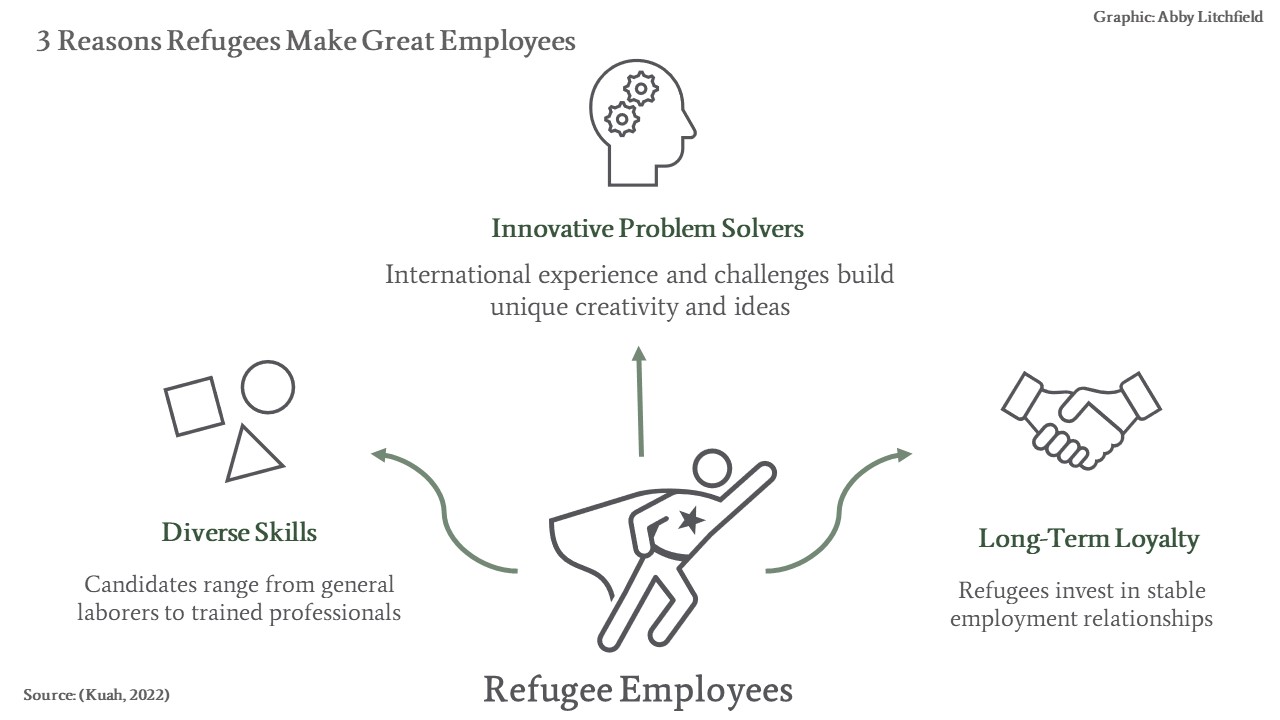5 Steps to Hiring Refugees Legally

In recent years, there has been a significant rise in the number of individuals seeking asylum and refugee status worldwide, leading to an increased focus on the integration of refugees into host communities. Integrating refugees into the workforce is not just a moral imperative; it's also a smart economic strategy. By providing refugees with employment opportunities, we foster inclusivity and bolster our economy. Here are 5 steps to hiring refugees legally within your organization.
1. Understand Legal Rights and Requirements

Before you proceed with hiring refugees, understanding their legal rights and the requirements set by your country is paramount:
- Learn about refugee work rights which can vary from work permits to full employment rights after asylum status is granted.
- Familiarize yourself with labor laws regarding foreign nationals, including work authorization documents.
- Consider seeking legal counsel or consulting HR professionals who specialize in immigration law to ensure compliance.
2. Modify Your Hiring Practices

Refugees often come with unique challenges related to documentation, language, and cultural differences. Here’s how you can adapt your hiring practices:
- Create inclusive job descriptions that do not assume pre-existing language skills or cultural norms.
- Offer language support during the interview process or translate relevant documents.
- Employ flexible assessment methods to recognize transferable skills that might not be evident on traditional resumes.
3. Partner with Refugee Support Organizations

Collaborating with organizations that support refugees can be mutually beneficial:
- These partnerships can provide pre-screened candidates, reducing your recruitment workload.
- Organizations can offer job-readiness training or mentorship programs, helping refugees adapt to the local work environment.
- It also supports community building and can lead to a more positive public image of your organization.
4. Provide Onboarding and Ongoing Support

The hiring process does not end with an offer letter. Continuous support is crucial for success:
- Develop an inclusive onboarding process that helps refugees understand company culture and workplace norms.
- Offer cultural training to both refugees and existing staff to foster mutual understanding.
- Implement mentorship programs to provide one-on-one guidance and help with any personal or professional challenges.
5. Measure and Share Success

To ensure the program’s effectiveness and encourage broader adoption, measure and share your successes:
- Track retention rates, job performance, and the impact of refugee employees on your business.
- Share success stories within your company and externally to promote your initiatives and encourage others to do the same.
- Provide feedback to refugee support organizations to help refine their training and support programs.
⭐ Note: Hiring refugees legally requires an understanding of national laws which can change, so keeping updated with the latest regulations is vital.
By implementing these five steps, businesses can not only provide life-changing opportunities to refugees but also enrich their workplace with diverse talents and perspectives. The mutual benefits of such hiring practices contribute to both the company's success and societal integration. It's about creating a workplace where everyone has an opportunity to thrive.
What are the legal rights of refugees regarding employment?

+
Refugees have different legal rights to work depending on the country they are residing in. Typically, refugees can work once they have received asylum status. However, some countries require a work permit. Always refer to local legislation for precise details.
How can I ensure my hiring practices are inclusive for refugees?

+
Creating inclusive hiring practices involves understanding and accommodating the unique challenges refugees face, like language barriers, cultural differences, and documentation issues. This can include offering language support, using job-readiness training, and flexible assessment methods for skill recognition.
Why should companies hire refugees?

+
Hiring refugees can benefit companies through workforce diversity, filling labor gaps, and enhancing corporate social responsibility. It also promotes economic integration and can help in building a positive brand image.